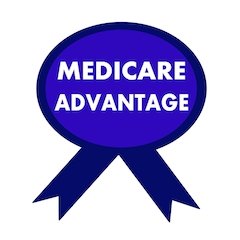As open enrollment rolls on, the nonprofit National Council on Aging (NCOA) has created My Medicare Matters, a guide to help baby boomers evaluate their individual needs, compare their options, enroll in a plan and sustain coverage for years to come.
In introducing the guide, NCOA also provided a list of the five biggest mistakes boomers make when enrolling in Medicare.
“People typically spend most of their life with health care more or less handled for them by an employer,” said James Firman, NCOA President and CEO. “With Medicare, your challenge is to translate the kaleidoscope of Medicare options into coverage that works for you. My Medicare Matters is a reliable resource to help boomers choose a plan that best meets their needs.”
With hundreds of policies to choose from and so much information to digest, the NCOA says many people guess when choosing a policy and end up paying too much for a plan that doesn’t cover what they need.
Here is the NCOA’s list of common mistakes boomers should strive to avoid. And please feel free to add to it, debate it or comment on it at this new thread:
Mistake 1: Signing up too early or too late for Medicare and its parts.
If a new 65-year-old or their spouse is still working and their insurance meets certain requirements, it may make sense to delay enrollment in Parts A, B and D.
Mistake 2: Not understanding the difference between a Medicare Supplement and a Medicare Advantage policy
Those new to Medicare have a fundamental choice to make: Enroll in original Medicare or opt into a Medicare Advantage plan. It is very important that you understand the pros and cons of both types of coverage.
Mistake 3: Guessing when picking specific plans
It can be very difficult and time-consuming to compare all of the plans that are available. Many people try to do their homework, get frustrated, and then “give up and guess.” Choosing a Medicare plan is too important to leave to guesswork. The NCOA recommends boomers take the time to review their health insurance needs before their first—and every subsequent—enrollment period.
The NCOA advises boomer think about:
• Do they have health insurance from another source?
• Do they have any chronic conditions?
• Which doctors and hospitals do they use?
• Which prescriptions do they need and what pharmacies do they get them from?
The NCOA also advises boomers get help from a “trusted source” that can help them think through their options and compare plans.
“If you’re unsure about your choices, start with a Medicare QuickCheckTM to get a personalized report on your options and use that to start a conversation with a licensed insurance agent,” the release advises.
Mistake 4: Not applying for extra help
Millions of older adults are eligible for billions of dollars in programs that can help them pay for their prescriptions and health insurance premiums, deductibles, and coinsurance. If income in retirement is modest, boomers should find out if they qualify for assistance.
Mistake 5: Not re-evaluating your coverage every year
Unfortunately, choosing health insurance is no longer a one-time decision for most Medicare beneficiaries. Insurance companies can make changes to policies every year. Just because someone’s doctor and medications are covered this year doesn’t automatically mean they will be covered in the coming year. Research studies show that the average consumer could save $300 or more annually if they review their Part D coverage. Make sure to confirm cost, copays, coinsurance, covered providers, and prescription drugs. Here are a few things to consider:
- Has your health changed in the last year?
- Is your current plan still meeting all of your health needs?
- How much have you paid out-of-pocket in the last year—and for what?
- How is your plan changing for the coming year? How will that affect your out-of-pocket costs?
- Are there better options available to you now?
“My Medicare Matters” is built on a strategic partnership between NCOA and Aon Retiree Health Exchange, Aon Hewitt’s comprehensive Medicare marketplace.
• How do NCOA’s “5 biggest mistakes” align with your experience working in the Medicare market? Please share your thoughts on this new thread.
About NCOA The National Council on Aging (NCOA) is the nation’s leading nonprofit service and advocacy organization representing older adults and the community organizations that serve them. For more than 60 years, NCOA has been a trusted voice and innovative problem-solver helping seniors navigate the challenges of aging in America. For more information, visit www.ncoa.org.
About My Medicare Matters My Medicare Matters® is an online educational service of the National Council on Aging (NCOA) and its nonprofit subsidiary NCOA Services, and is sponsored by Aon Retiree Health ExchangeTM. It provides comprehensive education and decision support to help people with Medicare make informed and confident choices about their health coverage and make the most of that coverage. For more information, visit www.MyMedicareMatters.org.













